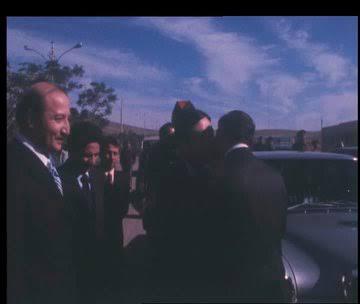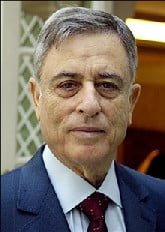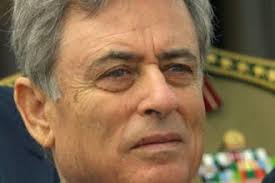The document, dated November 25, 2008, and issued by the U.S. Embassy in Amman, revealed that former President of the Jordanian Senate, Zaid al-Rifai, stated that the Bashar al-Assad regime acts more tactically than strategically.
According to the document leaked by the “WikiLeaks” website and translated by “Amman Net” and “Habr,” al-Rifai quoted former Syrian Vice President Abdel-Halim Khaddam as saying that the only thing Bashar inherited from his father Hafez is the acceptance that political assassination is the most suitable way to rid oneself of competitors.
Full Text:
Document ID: 08AMMAN3189
Subject: Jordanian Government Officials Discuss Support, Reform, Palestinians, and the Levant
Date: 11/25/2008
Source: Embassy Amman
Classified by Ambassador Beecroft for reasons 1.4 (b) and (d)
- Summary: Deputy Assistant Secretary of State for Near Eastern Affairs David Hale, who was in Amman to participate in the U.S.-Jordanian Political Dialogue (ref A), spent November 18 in separate meetings with King Abdullah, Royal Court Chief Nasser Lozi, Foreign Minister Salah Bashir, Senate President Zaid al-Rifai, and Minister of Planning and International Cooperation Suheir Al-Ali. Hale urged his interlocutors to assess the needs of Iraqi refugees as a precursor to justifying the continued provision of U.S. assistance on this issue. He stated that the current administration will hand over the Palestinian-Israeli peace process as it stands. End Summary.
Syria, Lebanon, and Iran
- Al-Rifai pointed out that while things seem to be stabilizing in Lebanon, there has been no fundamental change. Hezbollah holds the winning cards, and Syria does not abandon its efforts to influence political dynamics. His main concern was the upcoming elections, where Hezbollah is likely to strengthen its power. Some of this may stem from the increasing strength of Christian groups allied with the Shiite party, especially as Michel Aoun gains strong support among the divided Maronite community. Foreign Minister Al-Bashir described the upcoming elections in Lebanon this spring as, “When we know who won last May,” referring to the results of the Doha agreements.
- Regarding Syria, al-Rifai stated that the Bashar al-Assad regime acts more tactically than strategically, primarily because the Syrians “believe they are winning.” Bashar was just waiting for the end of the Bush administration. Former Syrian Vice President (and leader of the opposition movement, the National Salvation Front) Abdel-Halim Khaddam told al-Rifai that the only thing Bashar inherited from his father Hafez is the acceptance that political assassination is the most suitable way to rid himself of competitors. (Note: Al-Rifai speculated that Hezbollah’s military operations commander, Imad Mughniyeh, and Syrian Presidential Security Assistant, Brigadier General Suleiman Mohammad, were targeted by the regime in an attempt to eliminate anyone linked to the death of former Lebanese President Rafik Hariri. Al-Rifai stated that if the court is convened, there will be no one left to testify. End Note).
- Al-Rifai mentioned that he believes dialogue with Iran is good but ultimately fruitless. He stated that if the United States, the European Union, and Arab countries agree that Iran should not be allowed under any circumstances to obtain nuclear weapons, military force is the only option. Al-Rifai said, “Either bomb Iran or live with the Iranian bomb. Sanctions, incentives, and punishments won’t matter.” While Al-Rifai acknowledged that a military strike would have a “disastrous impact on the region,” he believes that preventing Iran from possessing nuclear weapons is worthwhile enough to justify the risks.




